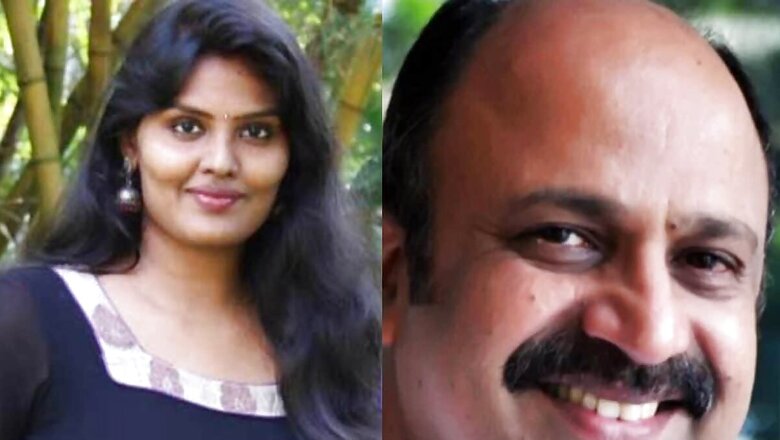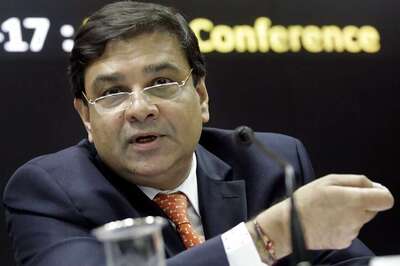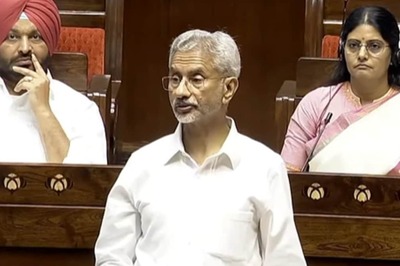
views
Women have been known to walk a tightrope balance, be it at work or at home, and yet the ugly side of these stories from the film fraternity includes late-night demands for sexual favours, enduring daily harassment, and expectations of high-quality work without basic facilities like toilets and changing rooms.
The Hema Committee, set up by the Kerala government, in its report endorsed the toxic environment where women are routinely mistreated and marginalised.
The report, though redacted in parts, exposed how the “power centre,” a group of a powerful few men, thought it ‘normal’ to coerce women into degrading situations – demanding nude scenes, withholding payment, and threatening bans if they spoke up.
This is the very Kerala that led the “Channar Lahala” or the “Channar Revolt” (1813 to 1859) against the collection of the heinous “Mulakkaram” — literally meaning Breast Tax. This was a tax collected from women of the lower caste living in the Travancore kingdom and they had to pay according to their size. Women fought long and hard for their right to wear upper-body clothes covering their breasts and finally won the struggle.
This is also the same Kerala where women working in textile units fought for their “Irrupu Samaram” (right to sit), and where women like P Viji of the women’s collective Penkootu fought a long-drawn battle so that women could take toilet breaks while at work in the unorganised sector. They too won their right to basic human rights. So what stops the film industry from another such uprising?
Many have long thrived in silence, many have made their experiences public, and many have decided to keep mum for now, but there seems to be a story that every artist in the film world has to tell.
The tip of the iceberg was the 2017 abduction and sexual assault of a popular Malayalam actress, which sent shockwaves across the country and highlighted how cruel the system had become. The Hema Commission investigated the conditions faced by women in the film industry. While it exposed the dark underbelly of Kerala cinema, it also triggered a volcanic eruption of emotions and traumatic excesses that bordered on inhumanity.
The Malayalam film industry, praised for its cutting-edge progressive films and handling of social issues in a manner that tugs at the heart, has in the past few days shown how regressive the attitude of the film fraternity truly is. It is important to understand that silencing a person and remaining silent are both crimes. For a medium that speaks of issues that need to be told, the film rolls only played a black strip of nothingness.
Having said this, we also need to acknowledge the courage of those women who have dared to speak out. They have recalled stories of abuse, deposed in front of the committee, and laid their futures in the film industry on the line – all for their dignity, their peace, and their self-worth.
Many prominent names from the Malayalam film industry have been named, and cases filed for their involvement in sexual misconduct. Resignations began to roll in.
The first was of filmmaker Ranjith, who served as chairman of the Kerala Chalachitra Academy, and who resigned after Bengali actor Sreelekha Mitra accused him of inappropriate behaviour during a casting session. She described how Ranjith made suggestive gestures and invaded her personal space during a meeting about a potential role. Though she clarified that he did not physically assault her, his intentions were made amply clear, she revealed in her complaint.
A young junior male artiste also accused Ranjith of seeking unnatural favours in 2012 in return for a role in a movie. This complaint has further embarrassed the industry and exposed the deep rot, though the veracity of all the complaints are yet to be proven by the police though their investigations.
Actor Siddique, also known to be part of the “power centre,” as well as the general secretary of the Association of Malayalam Movie Artists (AMMA), was forced to step down after serious allegations of sexual harassment were made against him by actor Revathy Sampath. She recounted how Siddique had invited her to his hotel room under the pretext of discussing work, only to sexually assault her and lock her inside.
Another actor-turned-producer spoke of how every night during a shoot she had to endure senior actors knocking on her door, asking to be let in and seeking favours. The standard statement would be: if you want to grow in the industry, then compromise is the way out.
A senior female actor who preferred not to be named loathes the common usage of a colloquial phrase in Malayalam: “Thaadi Valarthaam,” a thinly veiled euphemism for sexual favours. Though in the literal sense of the language, it means “grow a beard,” the sexually loaded connotation would translate as: if you give in, you will flourish.
“How do you expect us to react when they say this in front of so many other women? We are repulsed. They expect us to laugh and giggle when they say this,” the actor said.
The pattern is unmistakable: a pervasive culture of misogyny and abuse that extends to even the most basic interactions.
The term “making adjustments,” either to gain membership in AMMA or to land a ‘plump’ role, is quite common, women actors say. If she does not comply, within days her opportunities in the industry dry up, and she becomes a pariah.
The moment of reckoning has come for the Malayalam film industry to make meaningful change. The industry, known for its creative daring and innovative storytelling, now stands at crossroads and should follow the arrow towards change.
The present churn has given the industry a chance to lead the way in reshaping the cultural landscape of Indian cinema by creating a safer and more just environment for all who work within it—not just in Kerala but across all industries in the country.
The boys’ club days should be gone, say women in films. Women from all departments of filmmaking must be given seats at the decision-making table. Accepting the recommendations made by the Hema Committee — creating legal protections, ensuring written contracts, providing equitable remuneration, and gender sensitivity training for cast and crew — are a crucial start.
This moment must not be squandered. The time for real, systemic change is now.




















Comments
0 comment